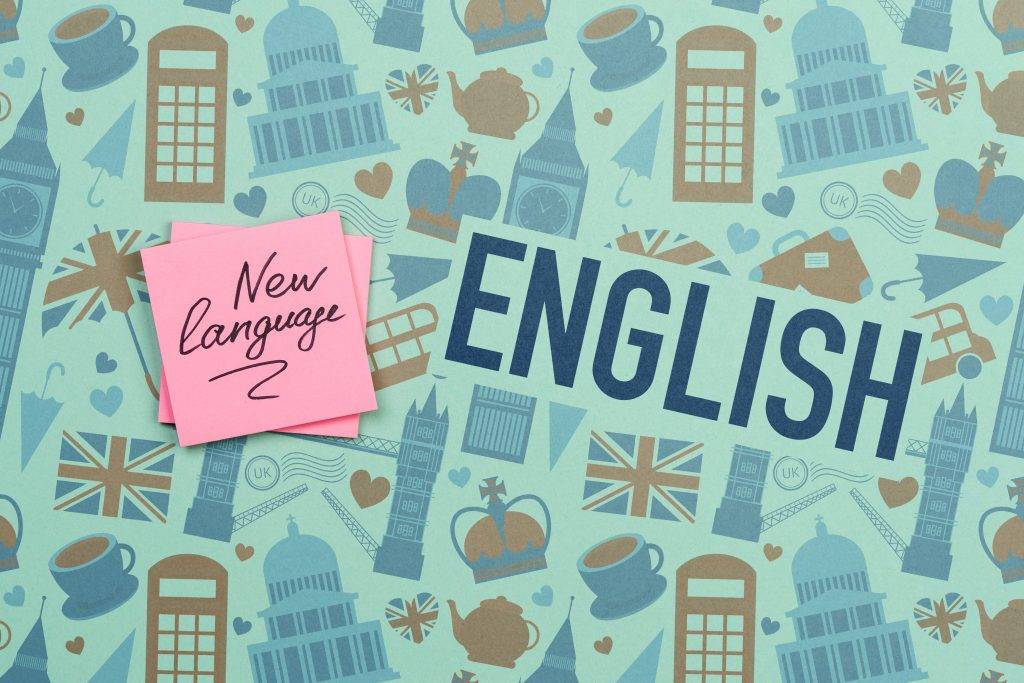Table of Contents
English: History of a Language
English as a language was born in the fifth century. Through the ages, it changed from Old English to Middle English and, finally, to the language we know today. It was standardized in the 16th Century with the start of the printing industry. With the industrial revolution and colonial expansion, new words were created, and many foreign words were assimilated to create today’s modern English.
Upcoming Batches of TEFL Course :-
| Batch | Mode | Price | To Enrol |
|---|---|---|---|
| Starts Every Week | Live Virtual Classroom | 26500 | ENROLL NOW |
How simplified is English?

English is spoken by around 20% of the world population that is approximately 1.5 billion people, which including native and non-native speakers. A Fun fact is that most of this considerable number of people are non-native speakers, meaning it is not the language they speak at home. Around a mere 360 million can claim English as their mother tongue.
Why an English Learning Program?
English has been recognized the world over as one of the standard business languages. Thus, it is not surprising that English is the most studied language world over. Students need teachers, who in turn, should have the training to fulfill the educational requirements of learners from varied backgrounds.
This calls for a well-established system of teaching program which is accepted in all corners. TEFL, TESOL, and TESL are English teacher training courses. As a trainee teacher, the first step of comparison is TEFL vs. TESOL vs. TESL. Then we further drill down to TEFL vs. TESOL Certification. To make an informed choice, read on!
TEFL vs. TESOL vs. TESL: Understanding the Certifications
TEFL – Teaching English as a Foreign Language
TEFL is the acronym for teaching English as a foreign language. These courses prepare prospective teachers to teach English to students living in non-English speaking countries. Thus, successfully bridging the language barrier in a class of non-English students in their home country. TEFL programs are widely accepted in non-English countries around the globe.
TESOL – Teaching English to Speakers of Other Languages
TESOL is a more recent addition to this list of certifications, combining elements of both TEFL and TESL. It stands for teaching English to speakers of other languages. The curriculum has a broader aspect, drawing on aspects of both TESL and TEFL. Thus, ensuring teachers can switch effortlessly between teaching in native and non-native speaking classrooms.
TESL – Teaching English as a Second Language
TESL stands for teaching English as a second language. TEFL certification is designed for teachers who plan to teach the language skills to foreigners living in a native- English speaking country. TESL certification is desirable for teachers intending to work in countries like the United Kingdon, Canada, the United States of America, Australia, etc.
All three certifications are similar in the fact that they train people to become qualified teachers. But all of them are slightly different, so when posing the question, TEFL vs. Tesol vs. TESL, these similarities and differences help to make the ultimate choice.
TEFL, TESOL & TESL: Used Interchangeably
When deliberating, TEFL Vs. TESOL vs. TESL, vital fact to be kept in mind is these all tend to be used interchangeably. Why is it so? The most probable reason is the overlap between all these despite distinct differences. All the courses are aimed at developing English language skills.
The learners often would have a TEFL trained teacher while studying in their home country. On the other hand, they would need services of a TESL/TESOL certification holder once they are in the native English countryside. However, each program equips for teaching English as a language. So, the boundaries are blurred and the interchange.
Another important fact is not all programs TEFL/TESL/TESOL have the same curriculum, and there is not any regulation for type of training, so it is accessible for training providers to replace the terms. Thus, many courses term themselves all three or two. It is always advisable to do some research before investing in a training program. But the most common courses offer TESOL or TEFL certificate.
Read Also: TEFL Certification in Utah
What about TEFL vs. TESOL vs. TESL?

While doing the research, the TESL programs also crop up. But it has become less common in recent years as people become multilingual. And the term ‘Second Language’ becomes more and more obsolete. Also, when compared, TESL vs. TESOL vs. TESL, the first two seem more linguistically correct and cover all the bases. The educators and researchers seem to prefer TEFL/TESOL, as these are more precise. And thus, TESL starts to take a back seat in the TEFL vs. TESOL vs. TESL possibility. However, it remains a popular qualification, especially in anglophone countries like Canada, the United Kingdom, the United States, and Australia.
TEFL Vs. TESOL: What is the difference?
It is a fact that TEFL and TESOL are the most common certificates required for teaching abroad or even within the country. The question people wonder about is the difference between TESOL and TEFL and how to compare TESOL Vs. TEFL. The common link between these two is the completion of each will create a compelling and knowledgeable educator. But each is designed to cater to a different segment of learners.
Course Focus: TEFL Vs. TESOL

TEFL is aimed to teach English in a country where English is not a predominant language. A TEFL course will train on how to reach out to students who have little or no chance for practice at home.IT may also have modules that are specific to teaching abroad, maybe with a particular focus on teaching destinations and resume writing.
In contrast, TESOL aims at teaching English as an additional language to those who live in a country that speaks primarily English. A TESOL course will focus on teaching English to non-natives and made modules on strategies useful in EFL and (English as Foreign Language) and ESL (English as Second Language) classes.
Thus, in comparing TESOL Vs. TEFL, the purpose, and aim have a great deal of importance. If, for example, teaching abroad holds a more magnificent charm, then TEFL may be an ideal choice.
Read Also: TEFL Certification in Oregon
The ideal Candidate: TEFL Vs. TESOL
Passion for the language and transferring the same to others is an inherent element for becoming a teacher. And it is not much different in the case of both TEFL and TESOL. After affirmation for one of these courses, exploration of the ideal institution is the next step.
There are a host of organizations that offer either single or both certifications. Some are offered entirely online, some are a combination of online and classroom, and some are purely classroom-based. The duration can range from anywhere between a month to up to 12 months, even more in some cases. And there is no international regulation standardizing the modules. The levels can range from a certificate to a Master’s degree.
A TEFL Certificate is ideal for individuals from all walks of life who are keen travelers and want to see countries where English is not the first language, especially. Many times, these would be young people who are new professionals and are starting their professional journey before settling down.
A TESOL Certificate is for people who want to teach English to non-natives in English-speaking countries. Often, it is a natural progression for educators already in the teaching profession.
What are the prospects: TEFL vs. TESOL

The final intention for undertaking a qualification is to establish a career, be it short-term or long-term. The same holds for doing a TESOL/TEFL course and understanding the differences in available job roles in an integral part of the TEFL vs. TESOL discussion.
There are a vast number of countries where this kind of English language instruction is in high demand and used widely. TEFL qualification is the most renowned teaching certification in non-native English-speaking countries around the globe, especially courses from reputed institutions or universities. Several states are willing to offer jobs, like China, Japan, South Korea, nations across the Middle East, Africa, Europe, and South America.
A TEFL certification is relevant when applying for several different types of teaching jobs, including teaching in schools, institutes, ESL Jobs, entry-level licensed teaching positions, experienced licensed teaching positions, and even administrative roles. In some situations, it may be an essential qualification, while in other jobs, it may be a recommended resume addition. Thus, being TEFL certified could open doors for better-paying teaching positions in many corners of the world.
Read Also: TEFL Certification in Minnesota
Completing a TESOL qualification may become the best thing for anyone unsure about future career plans. For teachers who are flexible to teach abroad as well as teaching English at home, TESOL could be a good start. However, there may be a stumbling block, as it is a newer qualification and still less highly regarded. While on the other hand, the job market in a country may be very competitive, with fewer options available. Once TESOL is certified, the conventional job roles may vary from language support teaching for students in public or private English schools to positions as an English teacher within private language schools.
Thus, for job prospects in TESOL Vs. TEFL discussion, TEFL has the advantage of being more established and accepted all over the world. While TESOL certificate holders are more competitive in the domestic market as well as being popular with membership organizations and universities.
Mode of Instruction and Pricing: TEFL VS TESOL

Pricing plays a crucial role in the selection of a course and how the course is being delivered. TEFL and TESOL certificate programs tend to vary widely in price and mode of delivery.
The significant factors influencing the price are:
- Is the class online or in a classroom environment? The best courses are usually delivered in person and are a lot more intense. They help peer-to-peer learning and build a network of like-minded professionals.
- What is the duration of the course in hours? the longer the hours, the more expensive the course
- Who is offering the course? Courses conducted by Universities and colleges are charged much more than private online companies that do the same thing.
- Is there practical teaching included, and for how many sessions/hours? This will increase the price, but it will also increase the value of the course.
- TEFL, as well as TESOL programs, can be done online or in classroom sessions or even a combination of the two(often referred to as hybrid programs) Online applications are usually the cheapest. They may have the option of add-on specialties like teaching young learners, business English, grammar, and test prep. Many times, adding on a specialty certificate course could help in securing a job more efficiently.
- In-Person or classroom programs cost more and usually have a practical training experience attached to them. This teaching experience allows an opportunity to put some of the teaching methods and lesson planning strategies into practice. This can be either from classmates or to actual English language learners, depending on the nature of the course. Then, feedback is provided by the course instructor. This feedback is valuable because the person evaluating will likely have several years of teaching experience under their belt.
Must Check US Ranked No. 1 TEFL Certification Course Online
Training Approach: TEFL VS TESOL
Despite being very similar and both entitling the holder to secure a well-paid job as an English teacher, TEFL and TESOL have a slight difference in the training approach to these teachers.
Most of the TEFL-related jobs are abroad in non-anglophone countries. The teachers are trained differently to handle a class of international students. During TEFL training, modules will be dedicated to learning to manage a classroom of students learning English as a second language in a place where English is not commonly spoken. These students mainly learn English for career and academic purposes. Thus, the teachers’ training focuses on grammar, work-related vocabulary, and pronunciation. The tutor also has to be familiar with English language tests like IELTS and TOEFL so that they can prepare the students for them.
TESOL, on the other hand, is mainly designed for those tutors who wish to work with foreigners settling in an English-speaking country. Their principal task is to help them adapt quicker to anglophone society. Thus, the focus shifts to everyday situations, vocabulary, small talks, etc.
In short, in this context, the TEFL vs. TESOL certification distinction has to be considered carefully to choose the right path.
Points to Consider: TEFL vs. TESOL

Making the final choice for the TEFL Vs. TESOL certification is a tricky one. Anyone deciding to opt for either one feels overwhelmed when they first start figuring out how to apply for either teaching jobs abroad or within the country. And then figure out the type of certification, then finally, the educational institution.
The final decision should keep the following in mind:
- Exactly where you want to teach. If you’re going to teach in a country where English is not the primary language, then the TEFL vs. TESOL Certification deliberation becomes more comfortable as a TEFL will serve you better than a TESOL certificate.
- Additionally, the course you opt for has to provide value for money, ideally, a certificate that will help grow your career for several years to come in the upcoming future.
- Since TESOL is a newer certification, it can be less highly regarded than a TEFL; thus, schools and organizations may not recognize it as often. If you are opting for ESL and EFL, then TESOL may be the right choice.
- While doing TEFL vs. TESOL certification exercise, understand clearly the subtle difference between the two and how it affects the curriculum.
- Learn about the accrediting bodies and find out how they differ from each other
- Make sure you know the future career prospects, whether choosing this as a long-term or short-term career.
- Always be aware of your budget and carry out research to maximize it.
- TEFL is a renowned and highly regarded certification overseas. TESL and TEFL certifications offer specific and customized course solutions. TESOL, on the contrary, is broader and flexible in comparison.
- There is no international body that regulates TEFL Certification; thus, you must choose a course that is well recognized by global employers. Well, regarded institutions or universities should have developed it.
- TESOL and TEFL are often used interchangeably, so be very specific and careful when you choose your course.
TEFL vs. TESOL Certifications: Let’s Summarize
While both of these certifications will provide you with equally impressive credentials to teach English to the learners of the language, yet the correct certification for you depends on where you want to teach and what your plans are with these certifications.
Let’s first Recall the Basics for TEFL vs. TESOL vs. TESL Discussion
- Teachers who plan to work abroad may be better off completing a TEFL certificate from the right institution or University. It deals with teaching English in a non-anglophone country.
- Those who intend to work with settlers from abroad learning English in their home country will benefit most from a TESOL certificate. It aims to equip teachers with imparting lessons on everyday skills.
- TESL is aimed at teaching English in an English-speaking country to people who speak a foreign language. TESOL is a newer certification, and many teachers prefer it over TESL.
Now, Let’s go back to TEFL vs. TESOL Certification
TEFL is the most desired and widely esteemed certification for teaching English overseas. It can be customized by adding specific specializations to it, like teaching young learners and adults. There is no single regulatory body that standardizes the certification. The learners often do not have had much exposure to English. They learn the language for better of their prospects both academically and for business. Finally, it prepares tutors to spend their teaching English in non-English speaking countries.
TESOL is the most recent qualification to be introduced and is sometimes not as popular with employers. It aims to create teachers who can assist people from foreign countries to learn English while settling in anglophone countries. These certificate holders are most active in the competitive domestic market. TESOL certification is regulated and controlled by government bodies in countries like the United Kingdom, Canada, and Australia.
Final Words on the TEFL vs. TESOL Certification Choice

It is a difficult decision to arrive at, which is a better certification. It will be fair to say during this TESL vs. TESOL dialogue, and we have come to realize they are both similar with slight differences in training structure and learners. The question, TEFL vs. TESOL Certifications, which is a better choice? It is entirely dependent on the final aim of the individual.
TESOL is for domestic teaching while TEFL is for teaching abroad. Yet, both of these are alike enough that even the terms are interchangeable. If you would like to teach domestically within English-speaking countries, choose a TESL or TESOL course. Both these programs allow you to successfully impart English knowledge for academic purposes and communication needed in everyday situations.
The next point to consider would be the job market; in this context, neither is better than the other; they are two terms that have similar meanings and have overlapping training. Though it has to be pointed out, TEFL has been around longer than TESOL. But if instructions are taken from the right institution or UniversityUniversity, they would be equally effective. A teacher with a passion for the profession should be able to apply the knowledge thus gained to any class successfully.
Also Check this Video
Frequently Asked Questions (FAQs)
Q-1. What is a TESOL/TEFL/TESL Certificate?
The TESOL, TEFL, and TESL programs provide an introduction to train people to teach English as a foreign language. Independent institutions or universities conduct these programs. On successful completion of the program, the relevant TESOL, TEFL, or TESL certificate is issued to indicate the same.
These programs are prerequisites of admission and assessment criteria for completion. Only the independent institution or the UniversityUniversity can provide details on these. However, it should be noted that graduate programs are usually of a longer duration than institutional courses.
Q-2. My degree is in a non-related field. Can I Still do a TEFL/TESOL Certification?
All TEFL/TESOL courses have some prerequisites for admission. However, in most cases, having a degree in a different field does not pose a problem for access to the TEFL/TESOL course. These courses are usually open to all through the decision of the individual institute or University for admission is final.
Q-3. Is a TEFL Certificate Necessary to Teach English Abroad?
There is not a standardized regulation that governs teaching English as a foreign language. But most reputable schools or adult teaching centers will only hire people who have completed a well-recognized TEFL course. The market is becoming more and more competitive, and most available jobs would ask for at least a certification in TESOL/TEFL
On the other hand, having a CV with certification will stand out from the rest. And the employer will consider this application favorably than an application without any such certification.
Q-4. How Important is it to Secure a Certificate from an Accredited Institution?
Various companies all over the world offer courses in TEFL and TESOL. But the standardization or regulation of content and quality does not happen considerably. Thus, the best way to ensure that the course is worth doing is to provide the institution that is externally validated by an accreditation agency of repute.
Recommended Programs
120-hours TEFL / TESOL
Online Certification Course
Ranked No. 1 Course | 100% interview guaranteed | Live Online Instructor-led TEFL Training & Certification | AAEFL Certified TEFL Course | Qualify for 12,000+ jobs from 6+ countries | With over 100,000 English teaching positions opening every year, immerse into the market of 2 Billion English learners today.
TEFL Certification Online
Course in USA
Ranked No. 1 TEFL Certification Course in USA | 100% Interview Guaranteed | Online Certification course in USA | instructor-led training and certification program of TEFL | Qualify for 12000+ jobs from 6+ countries.
Post Graduate Program
in TEFL
Ranked No. 1 Course | 100% interview guaranteed | Live Online Instructor-led Post Graduate TEFL Training & Certification | AAEFL Certified Post Graduate Program in TEFL | Qualify for 12,000+ jobs from 6+ countries | With over 100,000 English teaching positions opening every year, immerse into the market of 2 Billion English learners today.
Explore Popular Category






![Top 10 Countries for Teaching English Abroad in 2024 [Updated]](https://hh-certificates.sgp1.digitaloceanspaces.com/blog/wp-content/uploads/2020/05/10105810/pasted-image-0-15-270x180.jpg)
![What is EFL? How does EFL differ from ESL? 2024 [Updated]](https://hh-certificates.sgp1.digitaloceanspaces.com/blog/wp-content/uploads/2021/01/24123609/pasted-image-0-18-270x180.jpg)
![Ten Top TEFL Course in Idaho in 2024 [Updated]](https://hh-certificates.sgp1.digitaloceanspaces.com/blog/wp-content/uploads/2020/12/09120053/blog429-270x180.jpg)

.webp)
